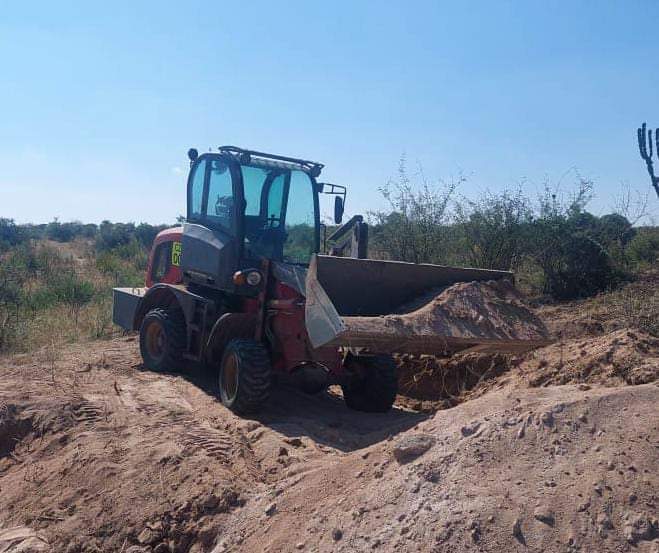Nigeria is richly blessed with abundance of mineral resources. The country boasts of more than 40 valuable mineral deposits including clay and kaolin, gold, gypsum, iron ore, lead and zinc, phosphate, and tin across the 36 States. Baryte, bitumen, coal, gold, iron ore, and limestone, lead-zinc and coal have been identified by the Federal Government through the Ministry of Mines and Steel Development as Nigeria’s strategic mineral deposits on grounds of their economic value1. Quarrying dominates the output of the Mining and Quarrying sector by over 90 percent o2 and recorded a growth of 21.16% in full year 2020 from -5.63% in 2019 and 10.33% in 2018, in contrast with Metal Ores which contracted by -5.85% in full year 2020 from -14.38% in 2019 and 26.34% in 2018, and Coal Mining which contracted by -20.5% in full year 2020 from 13.15% in 2019 and -5.81% in 2018.3 Products such as granite, gravel, marble, sand, and other construction materials are in high demand locally because of a combination of a growing housing deficit and infrastructure development projects4.
However, notwithstanding the growth in preceding years, Nigeria has barely scratched the surface of its enormous geological potential, taking into consideration the contribution of less than 1% by the mining sector to her GDP5.
With more than half of the country’s revenue derived from oil exports, Nigeria’s economic progress is practically tied to the boom of the oil market. However, the uncertainty of oil prices, lack of transparency in revenue obtained, lack of proper use and accountability in proceeds generated, alongside the drive towards energy transition necessitates the need for economic diversification. Neighbouring African countries like Ghana and South Africa have found the mineral mining sector to be a good contributor to their GDP. In Ghana, for example, mining is said to account for 5% of the country’s GDP and 37% of its exports while South Africa’s solid minerals accounts for 18% of its GDP, half of its foreign exchange earnings and approximately 1 million jobs.29 Diversification is an important element of economic growth. According to an estimate by the committee put together to develop a roadmap for the sustainable development of the mining and metals sector in Nigeria, the minerals and mining sector could generate more than US$25 billion by 2025 which makes up 3 percent of our GDP30.
The mining sector is widely recognized as a key driver for industrial development; thus, emphasis is placed on the need to follow through the execution of the industry plan in other to obtain benefits that would accrue from the mining sector. Minerals constitute a large portion of the inputs used in manufacturing and production of numerous economic goods and is an important contributor to the construction and drilling industry, making of automobiles, ICT gadgets, solar panels, furniture, papers and rubbers, medical equipment and energy generation. There is no doubt that if the opportunities in the sector are fully maximized, it would create job opportunities and improve living standard, reduce cost of production for local manufacturers, reduce dependence on foreign exchange for imports of materials, reduce infrastructure deficit, and also enhance competitiveness of our local industries amongst others.
Challenges Ravaging the Sector
There are a number of reasons why investment in this sector has been low. Amongst those already mentioned above, these include illegal miners and the insecurity posed by these miners, perceived instability in the legal and regulatory framework, political interference, lack of transparency, ineffective management by regulatory agencies, little public knowledge of the sector, including environmental and sustainability factors amongst others. These reasons are sufficient to discourage the much needed greenfield and perhaps brownfield investors. A case in point is the ban on mining activities in Zamfara State following the uncurbed incidence of violence by artisanal miners which had a negative effect on the business and capital investment of licensed miners. Nigeria should take a cue from other African jurisdictions. The Angola mining sector for instance, has experienced significant investment flowing from the country’s purposeful investment in the stability of its regulatory framework. There is no gainsaying that a conducive business environment which includes the ease of doing business, a functional and stable regulatory framework amongst others, would be a key attraction to investors.
Attracting Foreign Investors
The need to attract Foreign Direct Investment (“FDI”) cannot be over-emphasised as a critical vehicle for economic growth and development. Notwithstanding this benefit, it is important to consider the negative impact of mining especially as it relates to the environment. Research suggests that under appropriate framework conditions, foreign investments in mining frequently have higher environmental performance compared to domestic operations, due to new technologies and practices they bring with them. On the other hand, when these framework conditions, such as effective environmental regulation and transparent public governance, are not in place, there is a risk that serious environmental and social damage can occur.31 Good governance is an important prerequisite for the effective management of the mining sector as many avoidable environmental impacts of mining occur due to regulatory failures.
Thus, ensuring effective assessment of potential environmental impacts before operations begin, designing integrated packages of measures to mitigate potential impacts, monitoring the effectiveness of control measures and adapting them as needed, requiring adequate provisions for mine closure, reclamation and clean-up, taking local populations’ concerns into account and ensuring that environmental requirements are applied fairly, without discrimination, to all investors are necessary.32 Indeed all of these measures are contained in the Mining Act, the question however is the extent of effective administration of the provisions of the Act, and the effective implementation of other valuable recommendations made towards ensuring the success of the sector.
The vast mineral resource available in Nigeria is not in doubt. However, indices have shown that the level of development in the industry is at its lowest compared to other African Countries like Ghana, South-Africa, Zimbabwe, Angola etc. The sector remains unattractive currently for many reasons including insecurity in mining communities, fear of loss of investment arising from insecurity, lack of transparency, little or inadequate infrastructure, inefficient enforcement and monitoring institutions. A larger aspect of this challenge is the need to balance the stake of the host communities, the States in which these resources are situate and the constitutional powers of the Federal Government in relation to ownership of mineral resources. In our opinion, the challenges faced by the mining sector mirrors the overall challenges faced by the society at large. There is need for decentralization of various sectors of the economy in other to boost their effectiveness and contribution to the growth of the economy. We are currently seeing this play out in the electricity sector as constitutional amendments are underway to allow States generate, transmit and distribute electricity even in areas covered by the national grid.





